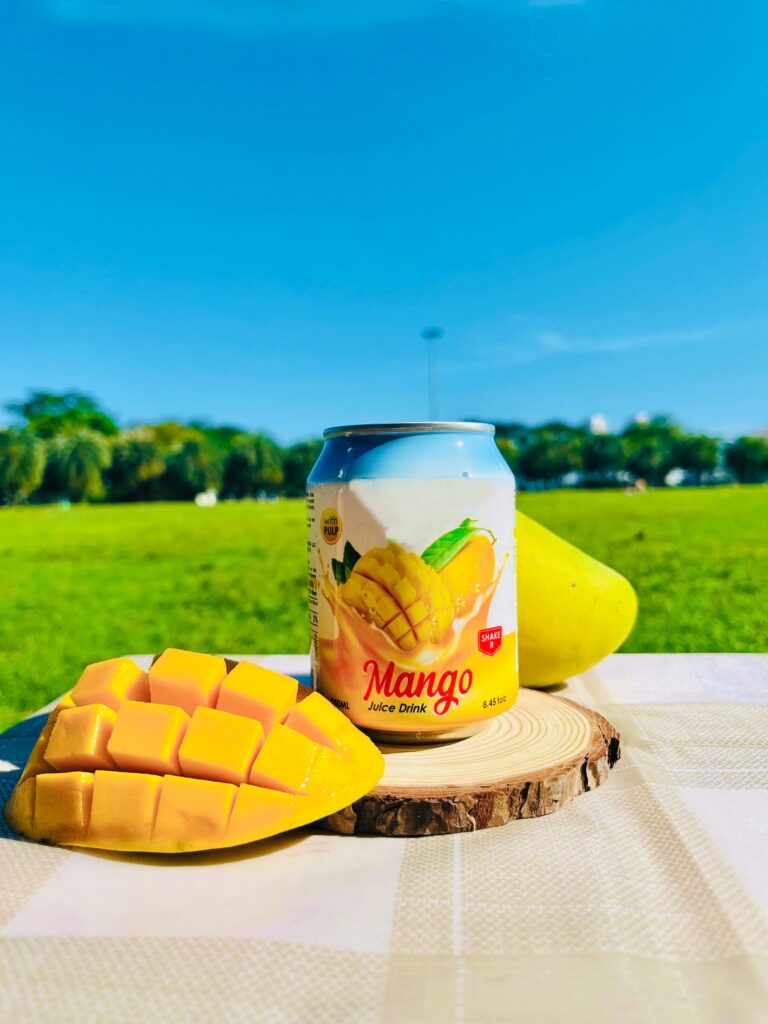Vietnam’s rich agricultural heritage and favorable natural conditions have positioned it as a leading producer of high-quality tropical fruits. This abundance has paved the way for a thriving fruit-based beverage industry, particularly in the realm of canned drinks. In this blog, we explore the factors that make Vietnamese fruits exceptionally suitable for canned beverages, the advantages they offer, and the industry’s potential on the global stage.
The Bounty of Vietnamese Fruits
Diverse Climate and Fertile Soil
Vietnam’s geographical diversity encompasses a range of climates and soil types, creating ideal conditions for cultivating a wide variety of fruits. From the Mekong Delta’s lush orchards to the highlands of Tây Nguyên, the country produces fruits such as mangoes, pineapples, dragon fruits, lychees, and coconuts. This variety ensures a steady supply of raw materials for the beverage industry.
Year-Round Harvests
The tropical climate allows for multiple harvests throughout the year, ensuring a continuous supply of fresh fruits. This consistency is crucial for the production of canned beverages, enabling manufacturers to meet both domestic and international demand without significant seasonal interruptions.
Advantages of Vietnamese Fruits in Canned Beverages
Superior Taste and Nutritional Value
Vietnamese fruits are renowned for their rich flavors and high nutritional content. For instance, the sweetness of Vietnamese mangoes and the unique taste of dragon fruits enhance the appeal of canned beverages, offering consumers authentic and exotic flavors.
Cost-Effective Production
The abundance of fruit production in Vietnam leads to competitive pricing for raw materials. Coupled with relatively low labor costs, this makes the production of canned fruit beverages economically viable. Manufacturers can produce high-quality products at lower costs, making them competitive in both local and international markets.
Established Export Infrastructure
Vietnam has developed a robust export infrastructure for agricultural products. With experience in exporting fruits to markets like Europe, America, Japan, Australia, and South Korea, the country has the logistics and regulatory frameworks in place to support the global distribution of canned beverages.
Industry Growth and Market Potential
Rising Global Demand for Tropical Flavors
There is an increasing global appetite for exotic and tropical flavors, driven by consumer interest in diverse and healthy beverage options. Vietnamese canned fruit beverages cater to this demand, offering authentic flavors that stand out in the crowded beverage market.
Investment in Modern Processing Technologies
Vietnamese manufacturers have been investing in advanced processing technologies to ensure the quality and safety of canned beverages. Techniques such as UHT (Ultra-High Temperature) processing and aseptic packaging help preserve the natural taste and nutritional value of the fruits, meeting international standards and consumer expectations.
Government Support and Trade Agreements
The Vietnamese government has been supportive of the agricultural sector, implementing policies that encourage the export of processed fruit products. Trade agreements with countries worldwide have reduced tariffs and opened new markets, providing further opportunities for the canned fruit beverage industry.
Challenges and Considerations
Quality Control and Consistency
Maintaining consistent quality in fruit production can be challenging due to factors like climate change and farming practices. Implementing strict quality control measures and investing in sustainable farming are essential to ensure the reliability of canned beverage products.
Competition in the Global Market
While Vietnamese canned fruit beverages have unique advantages, they face competition from other tropical fruit-producing countries. Differentiating products through branding, quality, and unique flavor profiles is crucial to gaining a competitive edge.
Conclusion
Vietnam’s natural abundance of high-quality fruits, combined with cost-effective production and a supportive export infrastructure, makes it exceptionally well-suited for the production of canned fruit beverages. By leveraging these advantages and addressing challenges through innovation and quality assurance, Vietnam is poised to strengthen its position in the global beverage market, offering consumers worldwide a taste of its rich tropical heritage.
References
- West Food – Step by Step to Conquer the Global Market
https://westfood.vn/en/westfood-canned-fruit-step-by-step-to-conquer-the-global-market - Vietnam Trade Promotion Agency – Agricultural Products Export Statistics and Analysis
https://vietrade.gov.vn - Vietnam Briefing – Vietnam’s Agricultural Exports: Trends and Opportunities
https://www.vietnam-briefing.com - ResearchGate – Impact of Tropical Climate on Fruit Production in Vietnam
https://www.researchgate.net - FAO – Vietnam’s Fruit Industry: Opportunities and Challenges
http://www.fao.org - The World Bank – Vietnam’s Logistics Performance in Agriculture
https://www.worldbank.org
